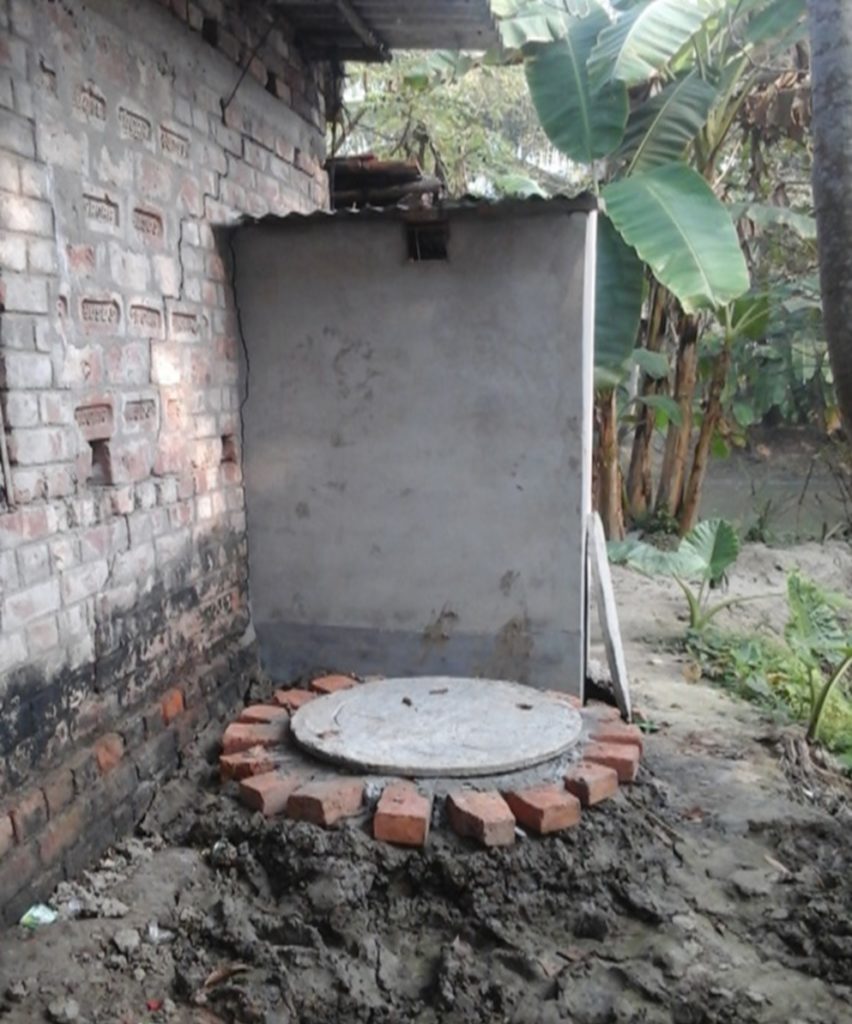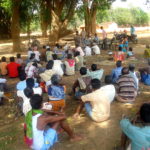Dignity Restored
Sujata used to always discourage her relatives when they wanted to visit her and stay with her. She would give excuses about anything possible to stop them from coming and staying with her. Her children too young to understand the reason would get upset and her husband would helplessly decide to ignore the conversation about the reason. Mrs. Sujata Mondal and her family resided in Krishnarampur village, Bishnupur-I Block, South 24 Parganas, West Bengal. They are daily wage labourers toiling hard to feed the four member family. The only asset they have is the small piece of land that can room only a small house.
The practice of Open Defecation was prevalent in this village, and the women were the most troubled group by this practice. Open defecation has its own hazard to health of the community, water pollution, air pollution, and spread of diseases. But for women it was all the more dangerous because they had to go out in the dark to relieve themselves, which had the risk factor of getting attacked by animals, snakes, people and injuring themselves in the dark.
Sujata always felt ashamed and scared of going out to relieve herself. She used to feel inferior to other women in her village. Unaware of the health hazards of open defecation, they were never able to understand why their children fell sick frequently and were spending from their less income to treat the children. Her outlook to life and priorities changed when she heard about the ill effects of Open Defecation from the staff of Diocesan Board of Social Services Barrackpore during an SHG meeting. The staff of DBSS Barrackpore also informed the members about the ‘Swachh Bharath Abhiyan’ and its provisions. Sujata took this piece of information to her husband who always helplessly ignored her distress. He was concerned about his children, but was more worried about arranging the resources to build a toilet. She assured that there is another way through a scheme but she needed to get more information to avail it.
The SHG members along with Sujata met with the staff of DBSS Barrackpore to know more about the scheme and ways to use it to build toilets for themselves. The DBSS staff in 2016 along with the members collected data on number of household that do not have household toilets and found that there were 365 household without toilets and some existing toilets were not used. The DBSS facilitated the process of application and follow-up with the community members for new toilets and also created awareness among the households who had toilets built but were not using. After submission of application and follow up, 338 toilets were constructed at different intervals and in July 2017, toilet was constructed for Sujata’s family.
The community members celebrated the construction of toilet like having built a new house. The DBSS’s staff also shared sanitation and hygiene practices that they should follow to prevent themselves and their families from diseases. The health of the children in the community using toilets has improved now; their frequency of falling sick especially with diarrhoea also has drastically declined. Sujata said with a smile, “I don’t have to feel scared about myself and my children anymore and I can invite all my relatives home.”
Sanitation and hygiene is not an issue of merely providing infrastructure but is an issue of changing the mind-set. CNI SBSS along with DBSS has been working continuously towards creating demand for sanitation by informing users about health benefits and helping local institutions in successful implementation of the ‘Swachh Bharath Abhiyan’.




